Taking a movable "F7" chord, you can derive each of the Big Six Core Chords. 7, maj7, m7, m7b5, dim7, and aug7 from that voicing.
Core Chords - Creating the Big Six from F7, 3rd Voicingon: Bluesky • facebook • twitter (X)
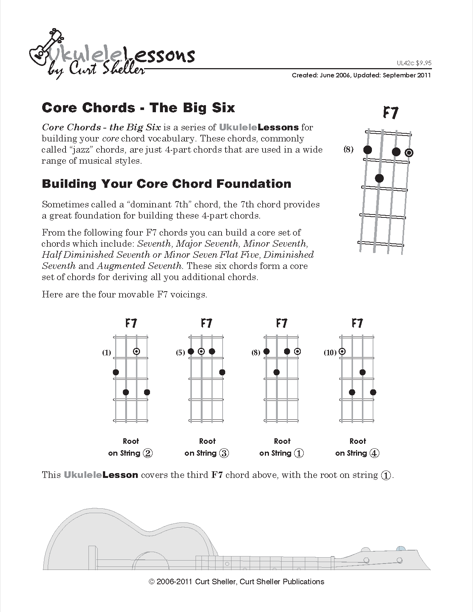
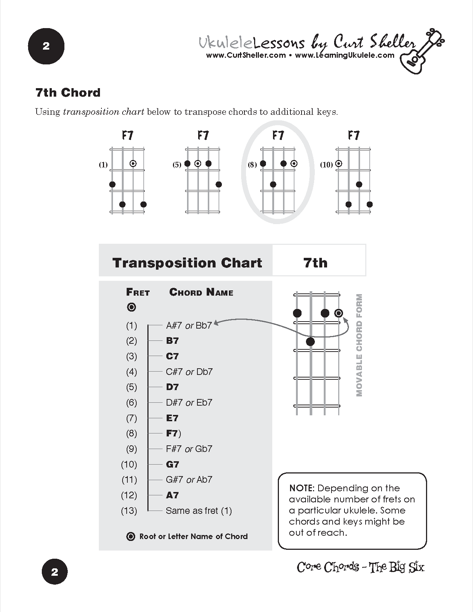
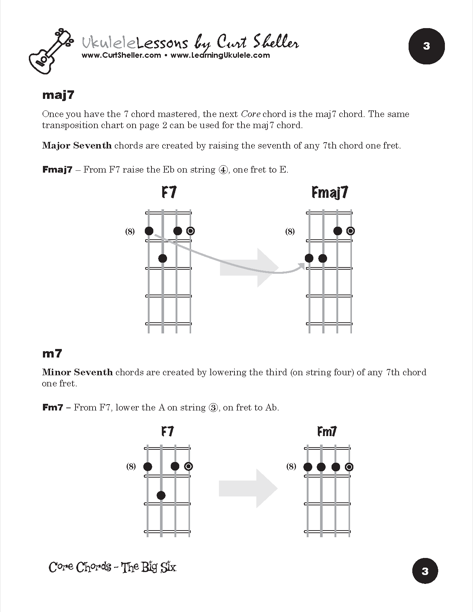
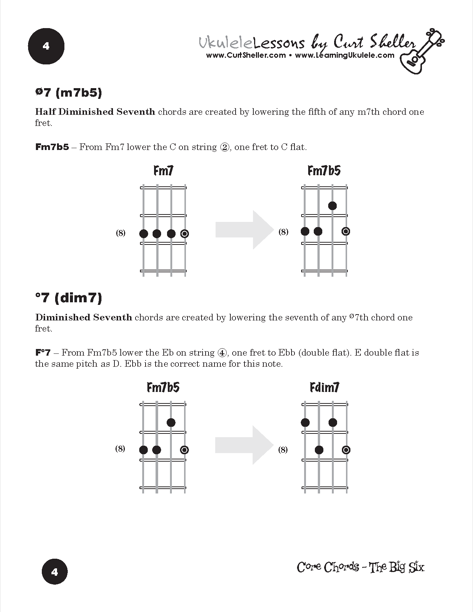
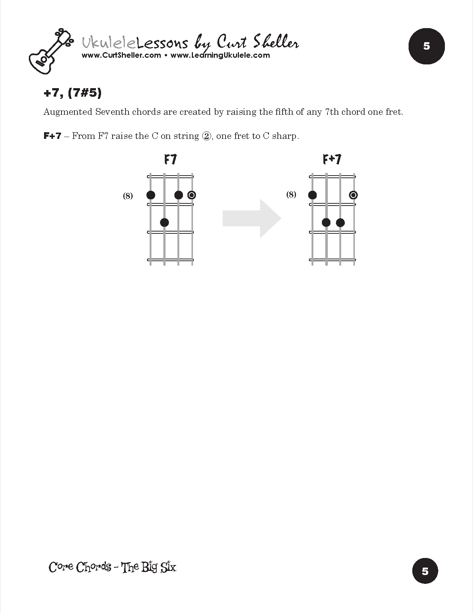







Taking a movable F7 chord, you can derive each of the Big Six essential chords. 7, maj7, m7, m7b5, dim7, and aug7 from that voicing.
Available for Premium Site Access Plans Only

This voicing is based off the open position A7 chord. How I categorize this 4-part chord for transposition purposes is - it's a seventh chord with the root on string three. That and knowing the notes of the ukulele fingerboard will allow you to transpose this chord to ANY key.

Core Chords is a series of UkuleleLessons for building your core 4-part, aka “jazz” chords. These chords commonly called “jazz” chords, are really just 4-part chords that are used in a wide range of musical styles.
These lessons present a highly organized and efficient approach to the mysterious subject of advanced chords. Chord dictionaries are not the answer. Even chord theory does not offer any insight into unraveling the complexity of Ukulele chord voicings.
Building Your Core Chord Foundation
Sometimes called a “Dominant 7th” chord, the 7th chord provides a great foundation for building your core chords.
From the following four 7th chords you can build a set of chords which include: Seventh (7), Major Seventh (maj7), Minor Seventh (m7), Half Diminished Seventh (ø7) or Minor Seven Flat Five (m7b5), Diminished Seventh (°7) and Augmented Seventh (+7). These six chords form a core set of chords.
From four the F7 chord voicings or shapes below, your can build your massive 4-part, a.k.a., “jazz” chord vocabulary.
Click on any one of the individual F7 chords above to start the lesson for that particular voicing or shape.
Taking a movable F7 chord, you can derive each of the Big Six essential chords. 7, maj7, m7, m7b5, dim7, and aug7 from that voicing.
Available for Premium Site Access Plans Only

This voicing is based off the open position A7 chord. How I categorize this 4-part chord for transposition purposes is - it's a seventh chord with the root on string three. That and knowing the notes of the ukulele fingerboard will allow you to transpose this chord to ANY key.

Core Chords is a series of UkuleleLessons for building your core 4-part, aka “jazz” chords. These chords commonly called “jazz” chords, are really just 4-part chords that are used in a wide range of musical styles.
These lessons present a highly organized and efficient approach to the mysterious subject of advanced chords. Chord dictionaries are not the answer. Even chord theory does not offer any insight into unraveling the complexity of Ukulele chord voicings.
Building Your Core Chord Foundation
Sometimes called a “Dominant 7th” chord, the 7th chord provides a great foundation for building your core chords.
From the following four 7th chords you can build a set of chords which include: Seventh (7), Major Seventh (maj7), Minor Seventh (m7), Half Diminished Seventh (ø7) or Minor Seven Flat Five (m7b5), Diminished Seventh (°7) and Augmented Seventh (+7). These six chords form a core set of chords.
From four the F7 chord voicings or shapes below, your can build your massive 4-part, a.k.a., “jazz” chord vocabulary.
Click on any one of the individual F7 chords above to start the lesson for that particular voicing or shape.
Related Lessons, Videos, Lesson Series, Songs, Books & Reference Charts, Resources & Assets, Workshops are below.
Beyond basic open position chords, basic movable form chords and a core set of 4-part chords. There are just too many chords shapes too memorize. Learning the principles of how chords are constructed and the ukulele fingerboard are the way to go. Then you can create more advanced chords like 9#11, 7#5-9, 13b5, 7+9 on the fly as needed.
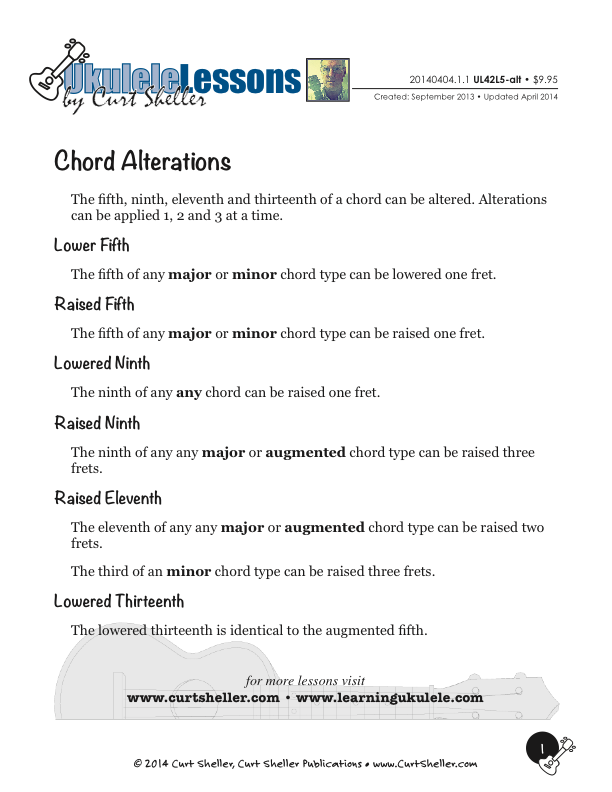
Beyond basic open position chords, basic movable form chords, and a core set of 4-part chords. There are just too many chords shapes too memorize. Learning the principles of how chords are constructed and the ukulele fingerboard are the way to go. You can then create more advanced chords like 9#11, 7#5-9, 13b5, 7+9 on the fly as needed from your core set of chords.
Core Chords - Creating the Big Six from F7, 3rd Voicing.
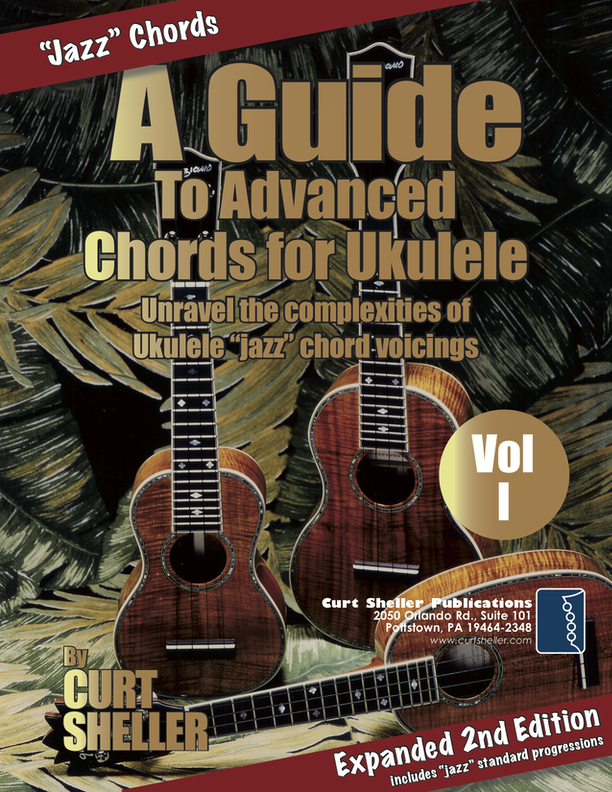
Beyond learning basic Ukulele chords, most players struggle with advanced chords. Commonly called "jazz" chords, these more sophisticated voicings find a wide use in all forms of music. A Guide to Advanced Chords for Ukulele - presents a highly organized and efficient approach to the mysterious subject of advanced chords. Chord dictionaries are not the answer.
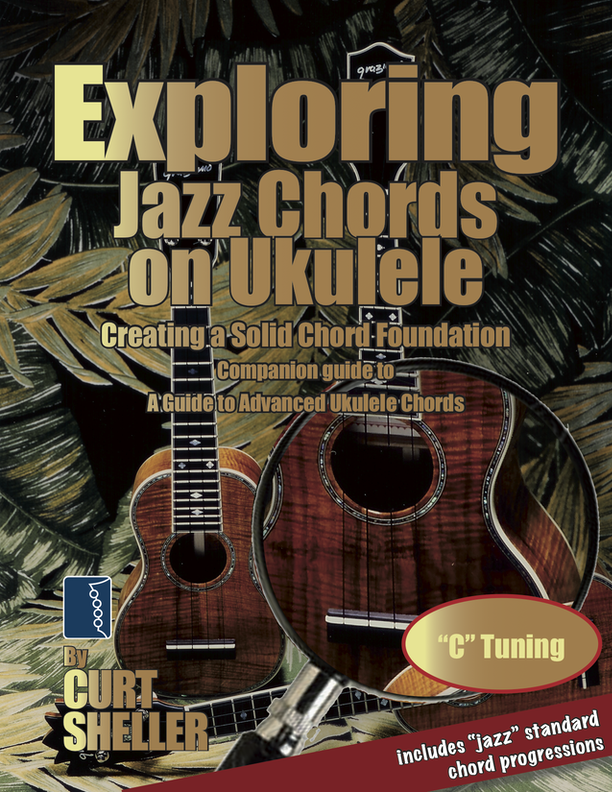
Exploring jazz chords using a variety of common chord progressions based on songs from the standard jazz repertoire. Core Chords are the basic set of chords needed to play a wide range of music, in a variety of styles. This set of chords includes basic open position chords, basic movable form chords and the core 4-part "jazz" chords.
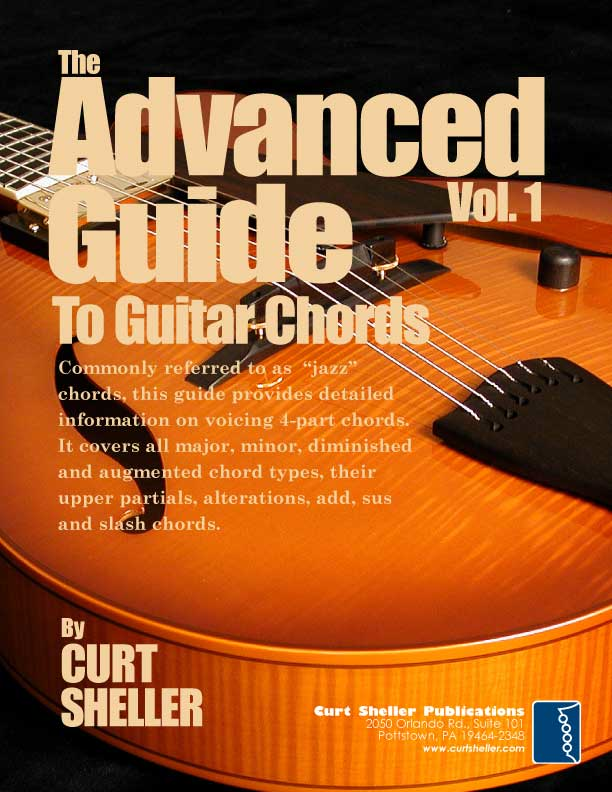
Commonly referred to as jazz chords, this book provides detailed information on voicing 4-part chords. Covers common string families. Beyond learning open and barre chords, most guitarists struggle with advanced chords. Commonly called "Jazz" chords, these more sophisticated voicings find a wide use in all forms of music.
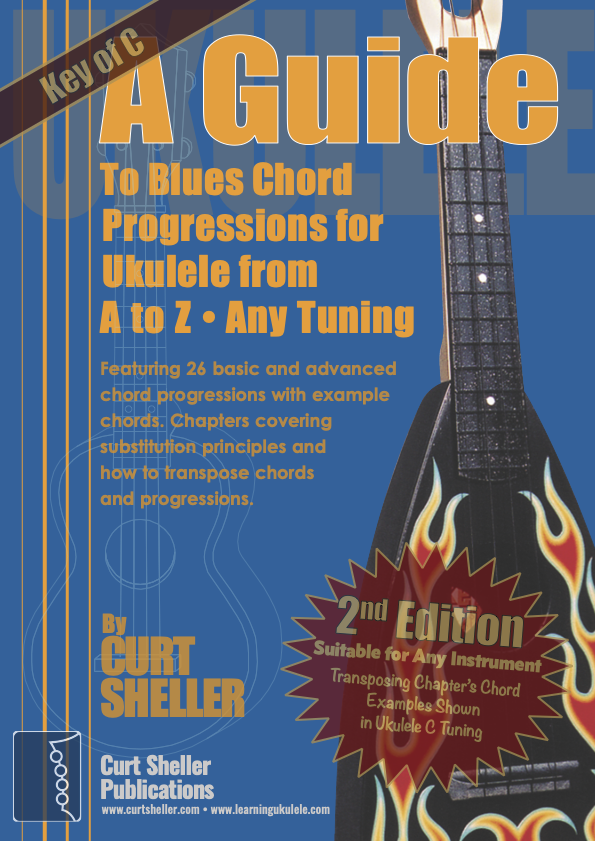
The Blues are at the heart of all American music. It has influenced Country, Rock, Folk, Jazz, Bluegrass and just about every form of American music we listen to today. 26 blues progression in C and G tuning, progressing from basic to advanced jazz progression, with chord grids and substitutions explained.

The Blues are at the heart of all American music. It has influenced Country, Rock, Folk, Jazz, Bluegrass and just about every form of American music we listen to today. 26 blues progression in C and G tuning, progressing from basic to advanced jazz progression, with chord grids and substitutions explained.
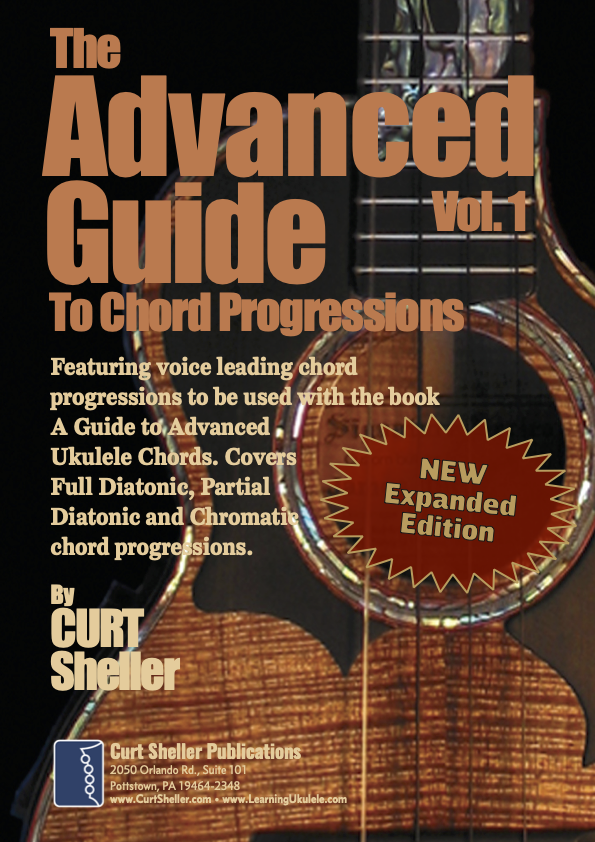
Before individual chords become the background of songs, they must be put into orders called chord progressions. The Advanced Guide to Chord Progressions for Ukulele organizes progressions according to string family, position, voice leading and chord magnetism.

Beyond learning basic Ukulele chords, most players struggle with advanced chords. Commonly called "jazz" chords, these more sophisticated voicings find a wide use in all forms of music. A Guide to Advanced Chords for Ukulele - presents a highly organized and efficient approach to the mysterious subject of advanced chords. Chord dictionaries are not the answer.

Exploring jazz chords using a variety of common chord progressions based on songs from the standard jazz repertoire. Core Chords are the basic set of chords needed to play a wide range of music, in a variety of styles. This set of chords includes basic open position chords, basic movable form chords and the core 4-part "jazz" chords.


return in your investment)—it is this— learning the
f*ckingnotes of your OWN instrument. Sorry for the tough talks—but it is sooooo true!
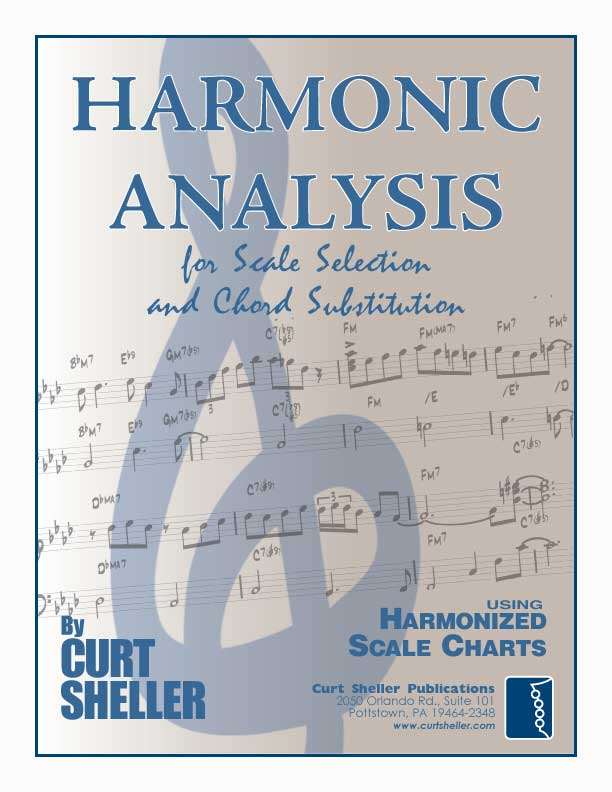
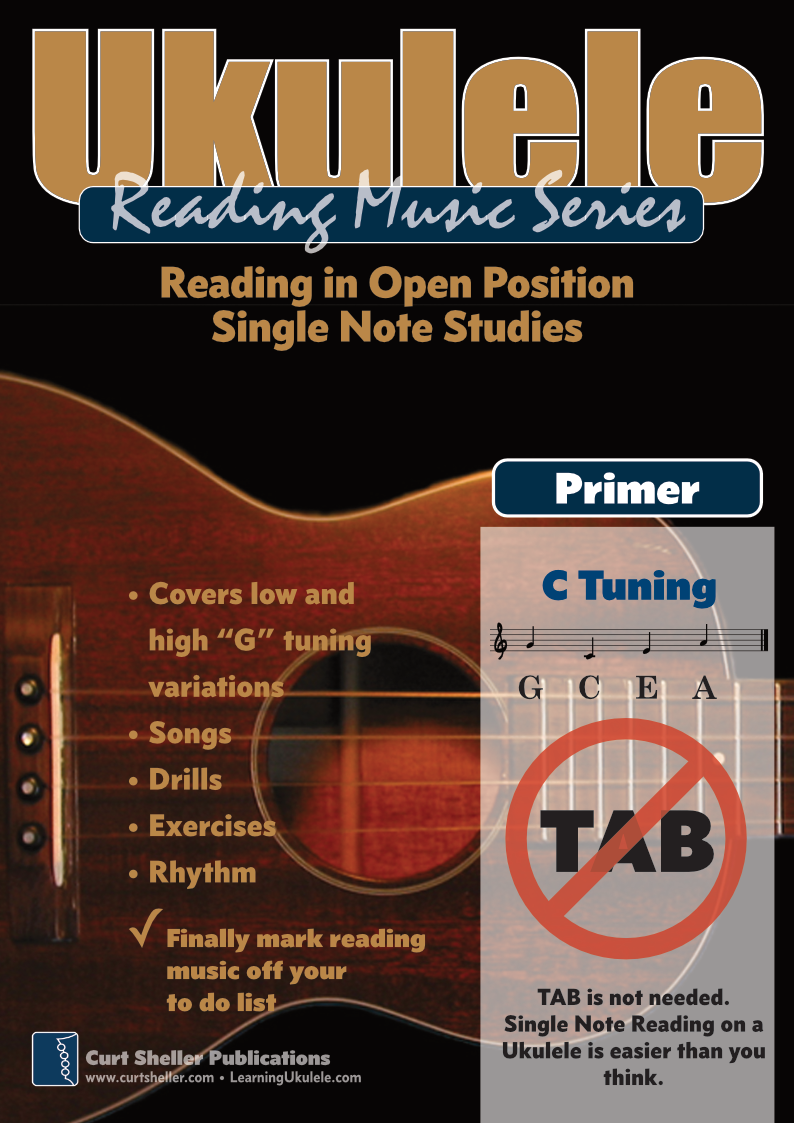
Learn to read single note melodies in the first/open position is a lot easier than you might think. Book: Ukulele – Reading Music Series – Primer
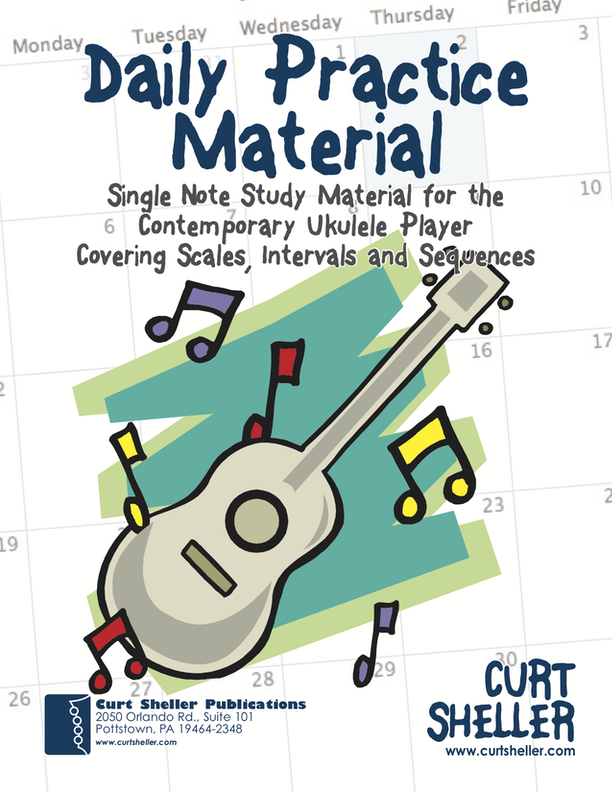
An organized collection of daily practice and reference material for the contemporary ukulele player for developing the vocabulary and knowledge necessary for single note playing. Book: Daily Practice Material for the Contemporary Ukulele
Checkout the Books & Reference Charts for additional Handy, Dandy Reference Charts.
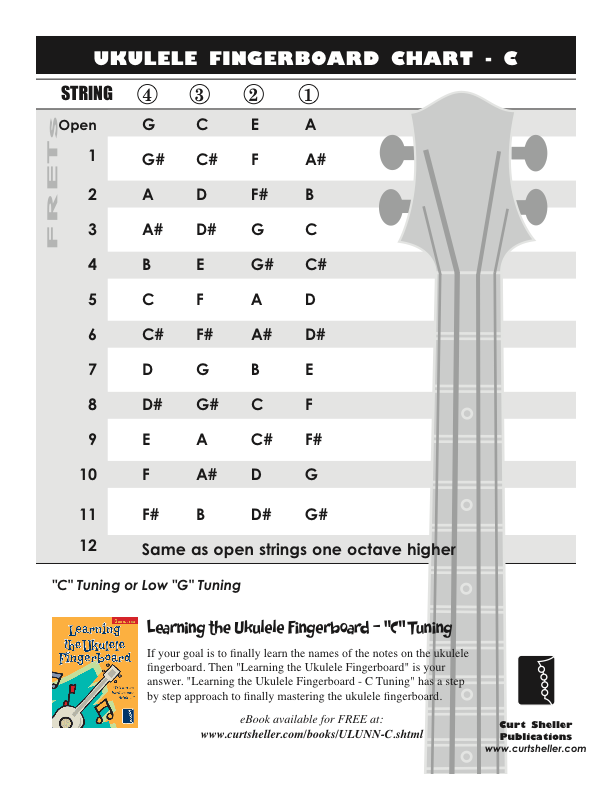
Ukulele Fingerboard Chart for C Tuning, Low or High G – G C E A
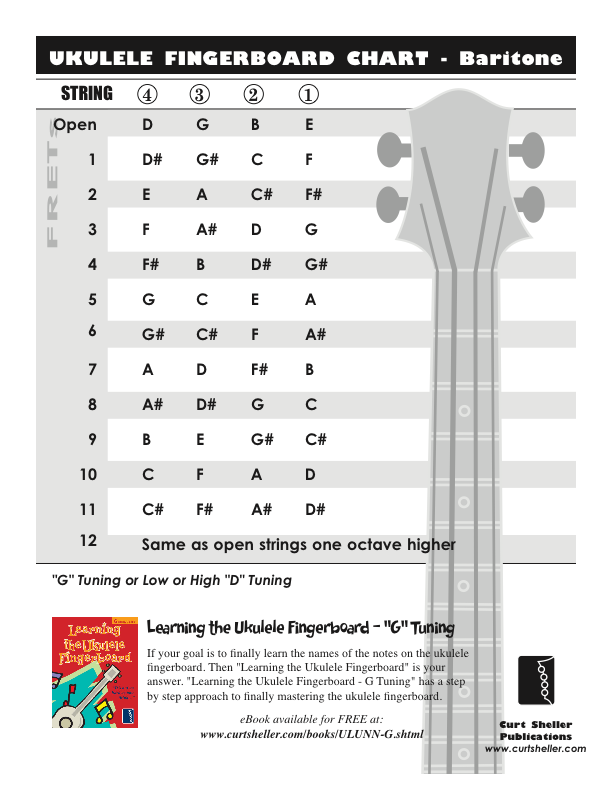
Ukulele Fingerboard Chart for G Tuning, Low or High A – D G B E
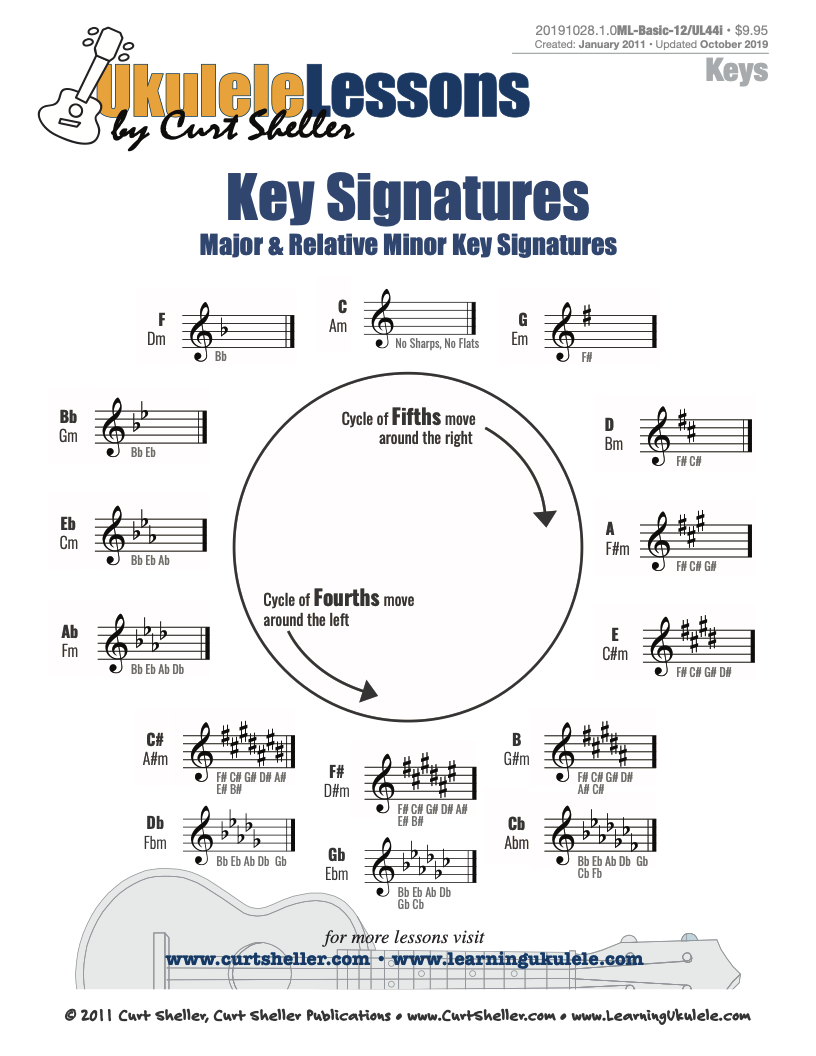
A handy reference chart of all 15 major and relative minor key signatures. US Letter 8.5 x 11 sized (ANSI-A) , A4







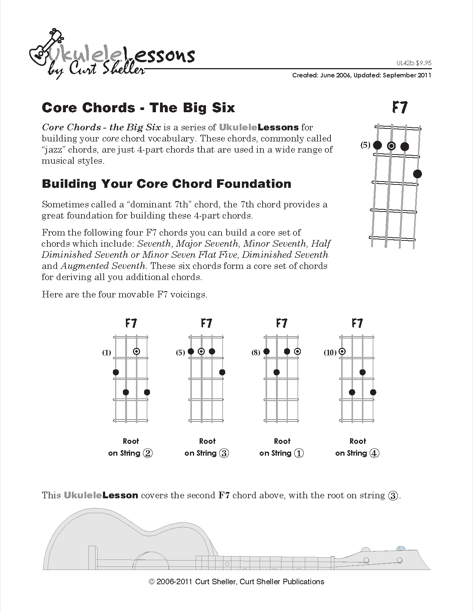
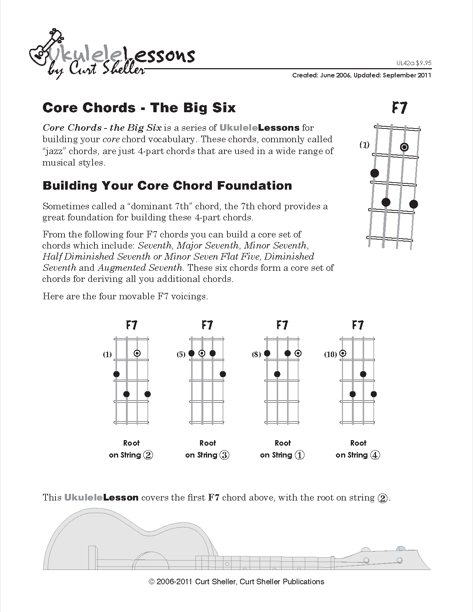
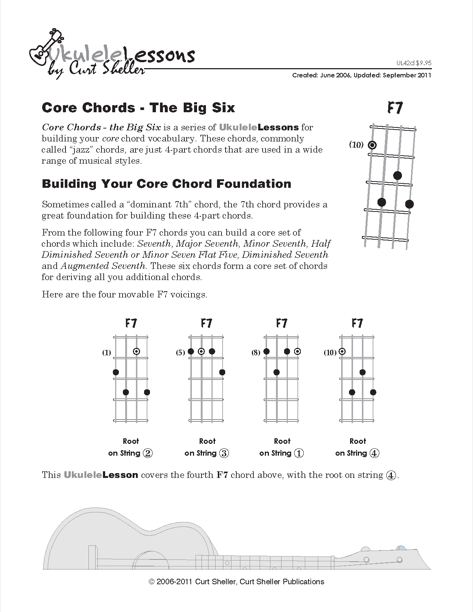
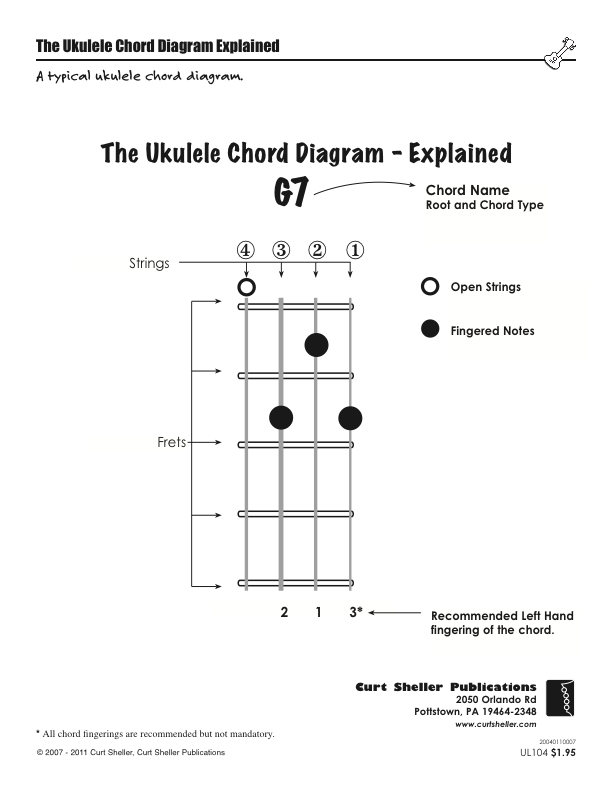



.jpg)